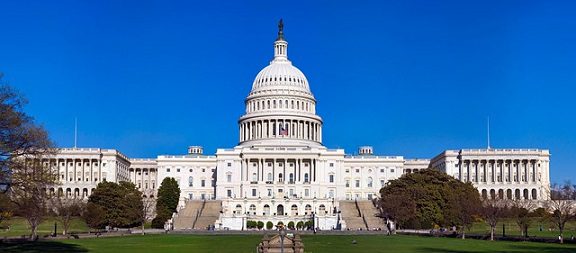Tax Cuts have the common sense effect on the federal register. The lower the rate, the lower the revenue. Any burst of consumption seen on the lower end, by a relaxation of the tax burden, is rendered beyond negligible by missed revenue on high income earners. In order to maximize the government's available resources, we need to reform our tax policy. I'm open to ideas, as long as they include raising taxes on the rich and raising capital gains.
Trump is set to propose some new tax policy anytime. All the old worn out talking points will be dusted off. They are going to lie boldly, unapologetic, and knowingly right to your face. "Tax cuts create jobs" "Tax cuts boost revenue" They are going to credit tax cuts for growth, that would have existed independent of the tax cut. When the top percentiles get even more money than they need, they do not reinvest it or spend it. They save it, which has no broader impact on the economy, it has an insular impact on the lucky bank account.
Some ideas floated by Trump regarding tax policy in the past...
Ending the Estate Tax...
3 tax brackets...
Lower taxes for everyone...
Lower business taxes...
We know from history that the strategy that conservatives use to sell tax cuts to the general milieu, is that tax cuts are reinvested into the economy. History has told us this is a lie. Massive tax cuts are about transferring money to the top. High income earners don't need the extra money and they save it. A massive tax cut results in the top percentiles of income earners, keeping large chunks of money, while the lowest of percentiles keep crumbs. Allow me to demonstrate.
Let's use the top marginal tax rate of 39% for income earners of $450,000... in this small sample:
(.39)(450,000)=$175,500
We know this hypothetical person actually pays a lower effective rate than 39% through deductions available to people who can afford savvy accountants.
Let's use the same tax rate on someone who made $2,000,000. I'm going to use two million because it is a large amount of money, that will illustrate my point later on, but, it is by no means even in the ballpark of what some Wall St. and silicon valley gurus make.
(.39)(2,000,000)=$780,000, once again we should note, that this hypothetical person pays a far lower effective rate after their accountant is through.
Let's look at how much someone in the middle class pays in taxes. Median income in the United States is $51,000. The current middle class tax bracket is 25%.
(.25)(51,000)=$12,750
Let's run a hypothetical.. Let's say legislation is introduced, like Trump has proposed in the past.. which lowers the tax rate across the board. Let's say everyone gets 5 points lobbed off their marginal rate.
That brings our middle class wage earner down to 20% and our twice times millionaire down to 34%.
(.2)(51,000)=$10,200. Not bad, a 5 point reduction in his rate saved him $2,550. That's a starter car for a son or daughter, or a nice family vacation. But, let's look at how much revenue the government loses when we knock 5 points off the $2,000,000.
(.34)(2,000,000)=$680,000.. 780,000-680,000= $100,000 That's a $100,000 dollar break, on an income of $2,000,000. The sheer size of those numbers compels me to favor, giving up my extra $2,550 dollars per year, if it means we have to sacrifice that much revenue.
Yu
When you see the numbers illustrated for you, can you understand the lie? Extra consumption in the middle class can be beneficial. However, excusing the absence of important federal revenue, in the name of the middle class, is a lie as plain as day. The truth is tax cuts give extra money to people who don't need it, at the expense of deficits which reinforce the conservative favorite: cutting spending. Tax cuts are a brainchild of the right, because they disrupt the government's books, which they can then use to manufacture a debt crisis, to cut programs they disagree with ideologically, and then call Democratic programs failures. If people are genuinely for cutting taxes. They must also be for cutting spending. This includes the DoD.
So, when Donald Trump and the rest of them, tell you that they are cutting taxes for you, you'll know they are lying to you. They're cutting taxes for the rich. That is who benefits here. The Republican never introduces legislation that does not include a major win for high income earners. That is a requisite of every piece of legislation. Look at the AHCA. They outright lied to you about the AHCA and disguised tax cuts for the rich, in warm and fuzzy language, like "access" and "choice".




